Science
University of Hyderabad Joins Global Effort to Combat Plastic Waste in Healthcare

The University of Hyderabad’s Department of Anthropology is set to participate in a significant international initiative aimed at tackling the challenges posed by single-use plastics in healthcare. The project, titled “After the Single Use,” is supported by a substantial funding of £5.9 million from the Wellcome Trust. This initiative unites researchers from eight countries to investigate the cultural, social, and environmental impacts of medical plastics, with the goal of promoting sustainable healthcare practices.
Associate Professor Nanda Kishore Kannuri will play a key role in this project, receiving a grant of £422,608 (approximately ₹5,00,29,264) over a five-year period. His contributions will focus on examining the factors that have led to the current healthcare waste crisis, assessing the life cycles of disposable medical technologies, and collaborating with various stakeholders to develop sustainable solutions.
Understanding the Scope of the Project
The “After the Single Use” project aims to explore a range of diverse healthcare settings, from aid posts in Papua New Guinea to hospitals in the USA and India. Researchers will investigate global interconnections in healthcare waste, such as the phenomenon of syringes manufactured in India being used in Senegal. This comprehensive analysis seeks to identify local solutions that can effectively reduce reliance on single-use plastics.
Dr. Kannuri expressed enthusiasm about the collaborative nature of the project, stating, “We look forward to working with our international partners to develop innovative solutions that can be applied in diverse healthcare settings.”
The project brings together a talented group of collaborators from prestigious institutions such as Johns Hopkins University (USA), University of Edinburgh (UK), University of New South Wales (Australia), University of Geneva (Switzerland), University of Oslo (Norway), National Institute of Medical Research (Tanzania), CRCF (Senegal), and the PNG Institute of Medical Research (Papua New Guinea). Additionally, key NGO partners like Health Care Without Harm and the Norwegian Bioart Arena are also contributing to this vital research.
Addressing Global Challenges
The research team aims to unravel the complexities surrounding healthcare waste and its environmental implications. By analyzing the lifecycle of disposable medical technologies, the project seeks to highlight the urgent need for circular healthcare economies that minimize waste and promote sustainability.
The initiative addresses a pressing global issue as healthcare systems worldwide grapple with the environmental repercussions of single-use plastics. By fostering international collaboration and sharing knowledge, the “After the Single Use” project aims to create impactful strategies that can be implemented across various healthcare systems.
This concerted effort underscores the importance of addressing the environmental footprint of healthcare practices, paving the way for improved health outcomes and sustainable solutions in the future. As the University of Hyderabad joins this global endeavor, it stands poised to contribute meaningful insights to the ongoing discourse on healthcare sustainability.
-

 World5 months ago
World5 months agoSBI Announces QIP Floor Price at ₹811.05 Per Share
-

 Lifestyle5 months ago
Lifestyle5 months agoCept Unveils ₹3.1 Crore Urban Mobility Plan for Sustainable Growth
-

 Science4 months ago
Science4 months agoNew Blood Group Discovered in South Indian Woman at Rotary Centre
-

 World5 months ago
World5 months agoTorrential Rains Cause Flash Flooding in New York and New Jersey
-

 Top Stories5 months ago
Top Stories5 months agoKonkani Cultural Organisation to Host Pearl Jubilee in Abu Dhabi
-

 Sports4 months ago
Sports4 months agoBroad Advocates for Bowling Change Ahead of Final Test Against India
-

 Science5 months ago
Science5 months agoNothing Headphone 1 Review: A Bold Contender in Audio Design
-

 Top Stories5 months ago
Top Stories5 months agoAir India Crash Investigation Highlights Boeing Fuel Switch Concerns
-

 Business5 months ago
Business5 months agoIndian Stock Market Rebounds: Sensex and Nifty Rise After Four-Day Decline
-

 Sports4 months ago
Sports4 months agoCristian Totti Retires at 19: Pressure of Fame Takes Toll
-

 Politics5 months ago
Politics5 months agoAbandoned Doberman Finds New Home After Journey to Prague
-

 Top Stories5 months ago
Top Stories5 months agoPatna Bank Manager Abhishek Varun Found Dead in Well









